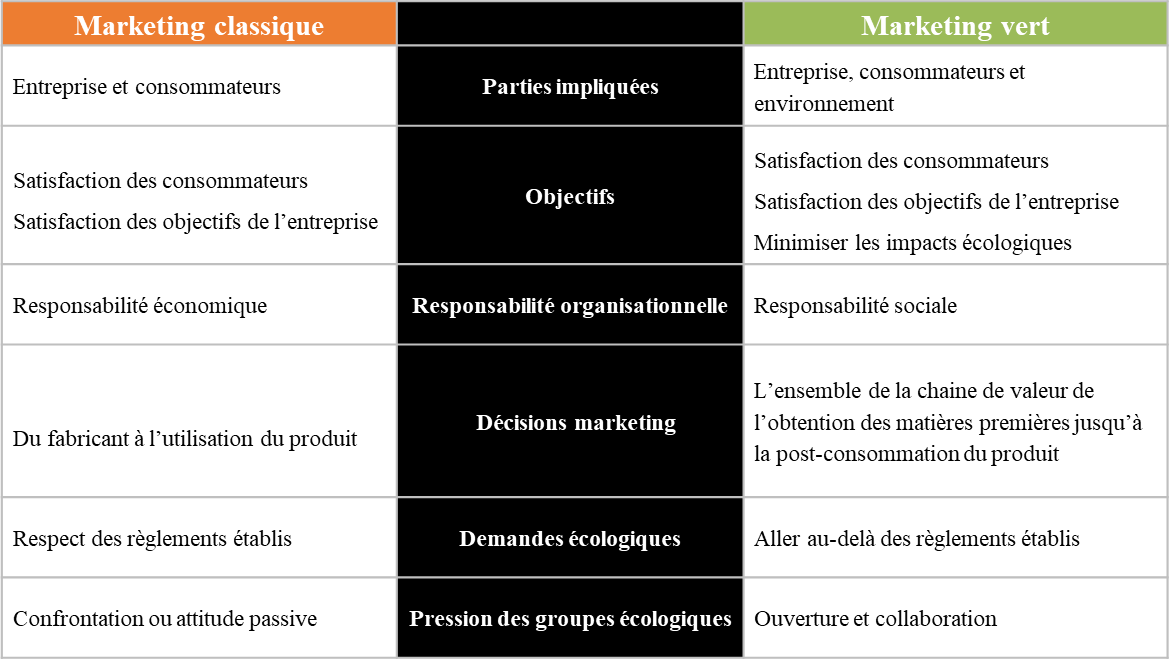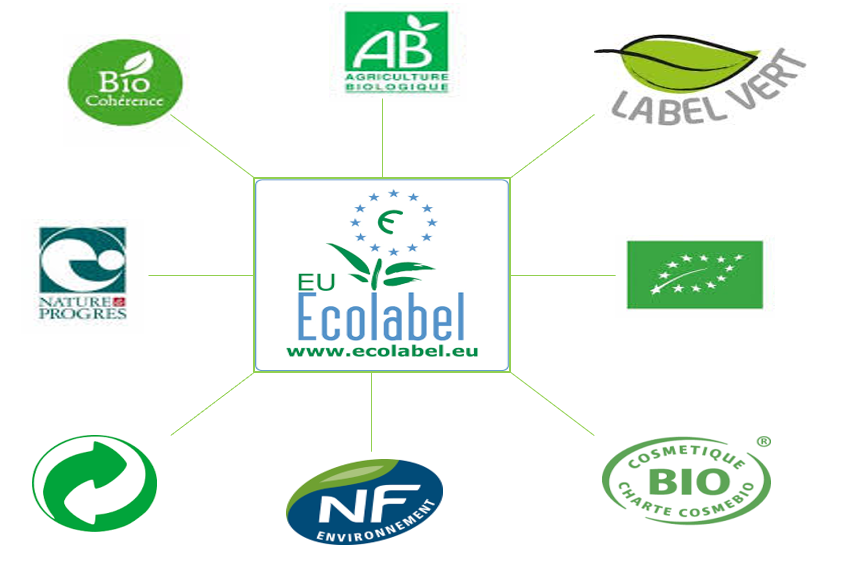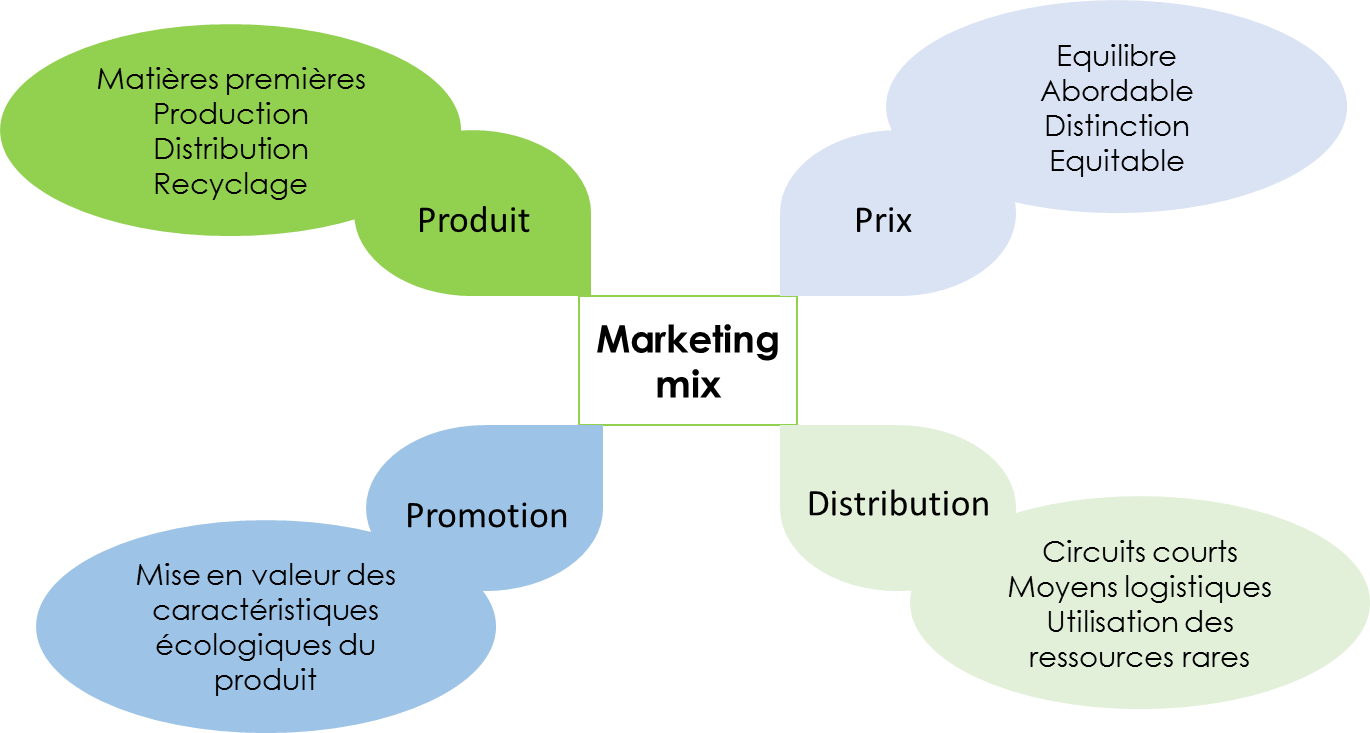Green Marketing: an opportunity for companies to green their image
Definition and origins of Green Marketing

The association of the concept of ecology with marketing has appeared in the literature in different forms: “green” marketing, “environmental” marketing or “ecological” marketing.
The first books on green marketing appeared as early as the 1980s following the first conference on green marketing at the American Marketing Association. From this time, companies began to integrate environmental logic into their communication and marketing strategies. The first recyclable packaging, phosphate-free powder detergents, cars with low fuel consumption are thus put on the market. Associations and actors committed to the protection of the environment were already critical of the sincerity of these actions. For them, it was above all alibis serving marketing interests rather than real ecological interests.
The definition of the concept of green marketing is not unanimous in the literature. In 1995, Philip Kotler believed that it allowed “to plan, implement and control a product, price, promotion and distribution policy that simultaneously meets the needs of consumers, the objectives of the organization, while minimizing negative impacts on the environment”.
Green marketing can be based on the ecological characteristics of a product (ecological raw materials, recyclable or biodegradable products), on the promotion of actions in favor of the environment like a tree planted for a purchase or on the environmental promises of the business through foundations for example.
Green marketing differs from “classic” marketing in several ways. Green marketing goes beyond marketing the green product in order to satisfy consumers and maximize business profits. On the one hand, it requires ecological characteristics in each of the 4 elements of the marketing mix and, on the other hand, respect for the environment must be integrated into the values and culture of the company.
 The green consumer is a consumer concerned about the ecology which adopts a purchasing and consumption behavior in line with the protection of the environment. He always takes into account the impact of his purchases and actions on the environment.
The green consumer is a consumer concerned about the ecology which adopts a purchasing and consumption behavior in line with the protection of the environment. He always takes into account the impact of his purchases and actions on the environment.
The green consumer is a young urban adult with a fairly stable socio-economic situation. He is very often socially and politically engaged. He is very sensitive to simple daily actions such as sorting waste and using reusable bags.
He refers a lot to the label as the main element for identifying green products. But he faces a multiplication of labels. The problem then is: which label to trust? This multiplication of labels confuses the consumer and negatively impacts the credibility of brands.

The challenges of green marketing on the marketing mix
The taking into account of green marketing by companies requires behavioral changes in terms of marketing mix policy: product, price, distribution, promotion.
Product: the product must respect ecological characteristics, i.e. not be harmful to the environment and this at all stages of production and distribution of the product until final recycling.
Price: an affordable price for the consumer must be set in balance between an overpriced price and a price signifying the added value of the product in terms of respect for the environment.
Distribution: the company must minimize the use of scarce resources in the distribution of products. It must prioritize short distribution circuits.
Promotion: the company must promote an image of ecological responsibility by highlighting the ecological characteristics of the product and its impact on the health of consumers. Clear and precise information must be visible on the product packaging.

Greenwashing, the drift of green marketing
Formed with the contraction of green and brainwashing, Greenwashing can result in eco-bleaching or image greening. The expression appeared in the 1990s and is used by environmental pressure groups to denounce the communication of companies on the gap between their communication on the ecology and their concrete actions.
Many companies abuse the environmental image and disseminate erroneous or approximate information to consumers in order to sell their product even if it does not respect ecological characteristics. Greenwashing is practiced particularly in the automotive, textile, IT, food and energy sectors.
Environmental associations are fighting a real fight against greenwashing companies by denouncing them and informing consumers. The ecological association Les Amis de la Terre and the Confédération paysanne has been awarding the Pinocchio prize for sustainable development in France since 2008. In 2015, for example, EDF won the prize for its “campaign to make nuclear energy clean energy”.
The Autor
 Mahamadou SIMPARA (Linkedin Profile) is from Mali and holds a Master 2 “Market Studies and Marketing Decisions” from the School of Management of the Sorbonne, in Paris (France). Mahamadou spent his entire young career at the Institut d’Etudes CSA where he held the position of Senior Research Executive.
Mahamadou SIMPARA (Linkedin Profile) is from Mali and holds a Master 2 “Market Studies and Marketing Decisions” from the School of Management of the Sorbonne, in Paris (France). Mahamadou spent his entire young career at the Institut d’Etudes CSA where he held the position of Senior Research Executive.



